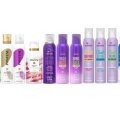The powdered canned infant formulas under investigation by the FDA in the U.S. that have already been recalled are Similac, Alimentum and EleCare brands. The American organization recommends that consumers who have recently purchased this type of product take extreme precautions.
As early as February 17, Abbott Nutrition initiated a voluntary recall of certain powdered infant formulas. Products manufactured at the Sturgis facility can be found throughout the United States and were probably exported to other countries as well. Canadian health officials have also issued a recall warning.
The FDA is advising consumers not to use the recalled Similac, Alimentum or EleCare powdered infant formulas. Recalled products can be identified by the 7- to 9-digit code and expiration date on the bottom of the package.
Recalled powdered infant formulas have the potential to be contaminated with Cronobacter, a bacterium that can cause serious foodborne illness primarily in infants. Cronobacter infections are rare, but are especially high risk for newborns.
Cronobacter bacteria can cause serious and life-threatening infections (sepsis) or meningitis (an inflammation of the membranes that protect the brain and spinal cord). Symptoms of sepsis and meningitis may include poor feeding, irritability, temperature changes, jaundice (yellowing of the skin and whites of the eyes), wheezing and abnormal movements. Cronobacter infection can also cause intestinal damage and can spread through the blood to other parts of the body.
FDA, along with CDC and state and local partners, is investigating four consumer complaints of childhood illnesses related to products from Abbott Nutrition’s Sturgis, MI, facility received from last September through January. In all cases they consumed powdered infant formula (IF) produced at Abbott Nutrition’s Sturgis, MI facility. These complaints include three reports of Cronobacter Sakazakii infections and one report of Salmonella Newport infection in infants. All four cases related to these complaints were hospitalized and Cronobacter may have contributed to death in one case.
FDA has also initiated an on-site inspection at the facility. Findings to date include several positive Cronobacter results from environmental samples taken by FDA and adverse inspection observations by FDA investigators. A review of the company’s internal records also indicated environmental contamination with Cronobacter Sakazakii and the destruction of the product by the company due to the presence of Cronobacter in these products.








